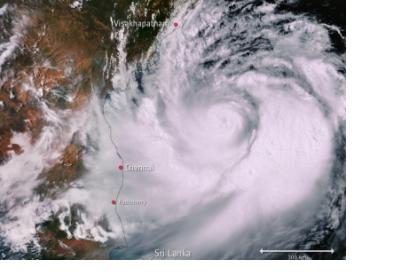Across the globe, natural hazards have triggered widespread death and destruction, with the human and economic impact of disasters continuing to rise. Despite ongoing advancements in disaster risk governance and comprehensive risk management, Least Developed Countries (LDCs), Landlocked Developing Countries (LLDCs), and Small Island Developing States (SIDS) continue to experience devastating impacts, eroding hard-won development gains.
Early warning systems have proven to be invaluable in reducing these impacts. By providing timely alerts, these systems enable governments and communities to take proactive measures, saving lives and minimizing destruction. For example, thanks to enhanced early warning systems in the Caribbean, fewer lives were lost during Hurricane Beryl in July 2024, compared to previous storms. This highlights the importance of robust, multi-hazard early warning systems (MHEWS) in addressing the escalating challenges of natural disasters.
Recognizing the usefulness of early warning systems, in the year 2022, the United Nations Secretary General, Antonio Guterres, launched the "Early Warnings for All" initiative. The aim of this initiative is to ensure that everyone on Earth is protected from hazardous weather, water, or climate events through life-saving early warning systems by the end of 2027. As a contribution to this initiative, the World Meteorological Organization (WMO) and the United Nations Office for Disaster Risk Reduction (UNDRR) recently launched the report entitled: "Global Status of Multi-Hazard Early Warning Systems 2024". It provides insights into the progress and challenges of implementing MHEWS worldwide. It presents 12 key findings that underscore the impact of early warnings on saving lives and preventing disaster-related damage. The report reveals that countries with less comprehensive MHEWS have a disaster-related mortality rate nearly six times higher than those with 'substantial' to 'comprehensive' coverage, and nearly four times more people affected by disasters. It also offers recommendations to accelerate progress, particularly in regions where disaster risk management remains inadequate.

